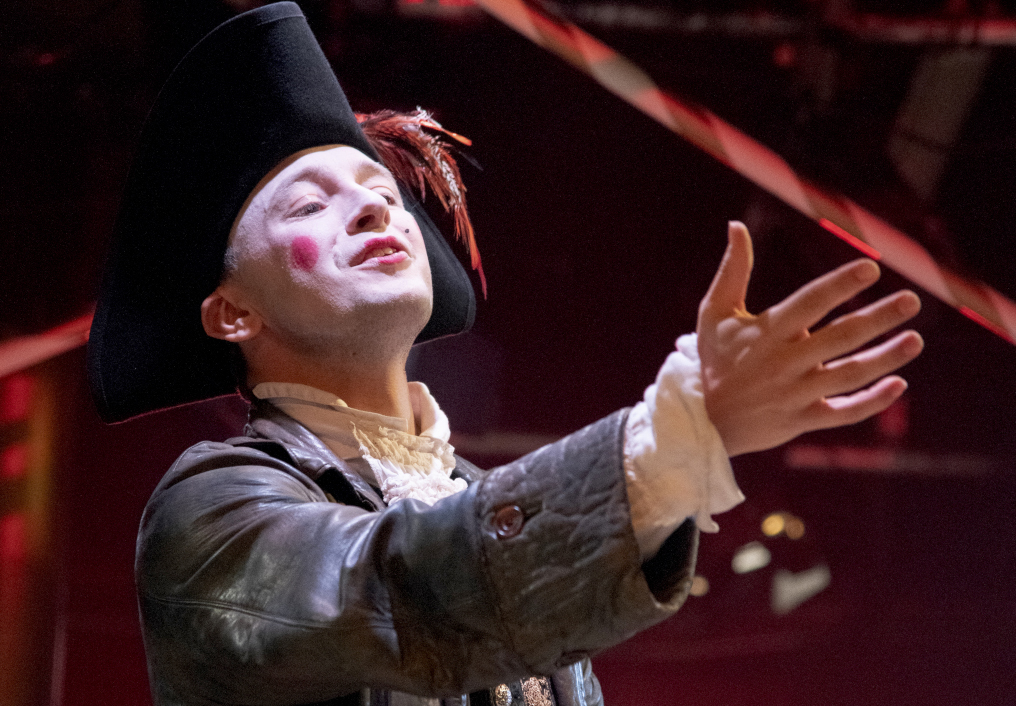
Opera Project have returned to Bristol with a breezy take on Rossini’s tale of young love winning the day. With a strong cast making the most of their opportunity to work in the round under the assured direction of Richard Studer, this was a night to savour. This evening’s band of opera-goers was sent home in merry mood.
A nude male statue on a hexagonal plinth commands the space during the first scene, a courtyard outside Dr Bartolo’s house. Here, William Wallace gives the love-sick Count Almaviva expressive passion in his attempts to woo the physician’s daughter while disguised as a poor student. Wallace’s tenor is a powerful instrument, resonating through the space afforded by the low-ceilinged Factory Theatre.
Studer’s design for the staging is minimal, allowing the singers the maximum fluidity of movement – perhaps most notably at the end of the first act when collective madness seems to overcome the company when Count Almaviva reveals his true identity and everyone seems to swim through a confused soup of sentiment, lit subtly with shimmering water effects. Studer’s English translation of Cesare Sterbini’s original libretto wittily indulges in reference to Mozart’s ‘sequel’, while the players appear Pierrot-style with powdered faces and red cheek spots, dressed in 18th century frock coats and dresses.
But hereafter, it is Philip Smith as the deal-making barber, Figaro, who really holds everything together. Smith is totally at home in his role as match-maker and conspirator, wittily drawing the audience in to his schemes, littering them with his business cards, sometimes entrusting them with his guitar, always with a winsome smile on his face. His mischievous deceptions and distractions easily win us over in his quest to see the young lovers united and gain him financial reward. Smith’s assured baritone warmed the night.
Rebecca Afonwy-Jones as Rosina gave delightfully unforced and colourful coloratura to her contralto arias while convincing as a young woman in love. Jana Holeworth occasionally stole the stage as Bartolo’s obstreperous maid Berta, with glimpses of her delicious soprano for all to appreciate. Bass Nicholas Folwell provided a perfect fit for the older but ultimately outwitted Doctor Bartolo, while Julian Close, as Rosina’s music teacher Don Basilio, seemed to disturb the very foundations of the Tobacco Factory with his rich, reverberating notes.
The ten-piece orchestra under the direction of conductor Jonathan Lyness provided an exhilarating but light touch to Rossini’s enchanting score, with an unamplified sound never crowding out the strength of the vocals. While the strings were always a delight, the woodwind and horn added expression and precise punctuation throughout.
As Figaro finally catches his bag of gold and the lovers are safely married, we are left with the warm glow of a happy ending, a tale well told. A scintillating start to the Tobacco Factory Theatres’ autumn season. ★★★★★ Simon Bishop 25th September 2019

